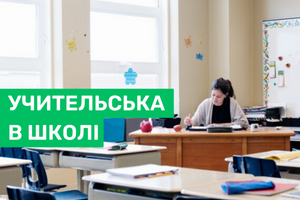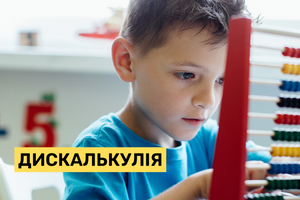We usually only learn to read, write and count in primary school. We can talk beforehand. But this is exactly what some students miss when they have to speak in front of an audience or feel like the center of attention. They often know the answers but cannot verbalize them.

In this post, read about the causes of silent behavior in children and the best way to help them feel better and less stressed.
Content
1. Talkativeness of a student in primary school
2. Shyness in primary school
2.1. Characteristics of shyness
2.2. When shyness and insecurity become a problem
3. 5 tips for dealing with silent children
A student's talkativeness in elementary school
You probably know the criteria of talkativeness well. In addition to quantity, quality plays an important role: those who only describe facts or repeat the answers of other students learn worse than those who grasp new, complex facts, think about them and find solutions.
So far it makes sense. However, if you have a child in your class who doesn't say anything all the time, you won't be able to gauge their oral competence very well. On the other hand, the written results will be available to you. And given good written performance, it is reasonable to assume that a silent child can probably also perform well orally if he can express himself differently in writing.
Still, in theory you can only judge what you hear, at your own discretion or not. In any case, it is worth critically examining the importance of verbal participation in our school education system.
Shyness in primary school
Many children are shy. For some it is just a phase, some outgrow it, some remain quite reserved even in adolescence and adulthood and change only later or never.
Children are developing, and especially after the transition from kindergarten to elementary school, there are many changes that can be scary: new faces, new rooms, lessons and school subjects, homework, completely new requirements such as reading, writing, etc. .. This can be intimidating to children who previously seemed or were quite confident and outgoing.
In general, children need time to get used to new circumstances and challenges. If the child is already more introverted, it will take longer.
Characteristics of shyness
Dr. H. Steckley singles out three symptoms of shyness:
physical reactions such as flushing, palpitations, sweating
cognitive symptoms such as negative self-esteem or self-rejection
social aspects such as prohibitions or isolation
According to Steckley, shyness is an expression of temperament, and therefore not a mental disorder. Shy children find it harder to communicate and face unfamiliar situations because they fear rejection or negative evaluation. This is usually due to their negative self-esteem.
Sekley also provides numbers on the subject of shyness:
in kindergarten, a third of children are "noticeably shy"
in primary school, the share drops to 16%
half of shy elementary school students remain reserved
Shyness is considered hereditary. Of course, upbringing also plays a role. Shy parents have, for example, a tendency to be overly protective. In doing so, they reinforce their children's doubts and inhibitions.
In general, shy people have a lower threshold for stimulation. On the other hand, shy people act more structured and more at peace with themselves.
When shyness and insecurity become a problem
Many shy or quiet children enjoy contact, interpersonal relationships, praise, or success, and so overcome their reluctance if the right bridges are built for them.
However, if children do not learn to overcome their inhibitions, they do not feel able to cope with and navigate new situations. At worst, this leads to social anxiety, which often occurs during puberty.
So, if you feel that all your careful attempts to restrain your child are not working, or if your child is suffering greatly because of his behavior, you should consider the following steps:
Discuss your impressions with colleagues.
Consult with the parents: how does the child behave in the family?
Consult a school psychologist.
Tips for dealing with silent children
Ask for reasons
Quiet children often shy away from gatherings, allowing for potential mistakes and the unknown. If they trust you as a teacher, they will likely open up and share. Make sure, however, that the conversation goes unnoticed by other children - attention in any form is not desirable for quiet children. And by telling the whole class, "Please stay with me at recess," you're putting pressure on them. (“Classmates will definitely ask what happened, what can I say, my God, how embarrassing, today is the worst day of my life!”)
Sometimes the reason for reluctance in the classroom is not closedness or shyness. Perhaps the children are simply tired, because for some reason they cannot rest at home. Maybe they are sad. Maybe they are being bullied and that's why they avoid it completely. There may be a learning disability that is causing the child difficulty and embarrassment. Perhaps the child's education is not enough or too overloaded - or it is something else entirely, or a combination of different factors. But you can know this only when you look for contact - with the child, and possibly with the parents.
Discreetly make shyness or fear part of the lesson topic, e.g. in the form of a picture book. In this way, you bring to the class association an understanding of this phenomenon and start a conversation. Again, of course, don't approach the silent ones in front of everyone and ask for their opinion. Anyone who wants to will tell you in detail in a written (homework) task, but most likely they will not want to read it. Respect that too.
Don't force it
Quiet children suffer the most. And no one needs to do something that causes them stress, that scares them - especially since it increases the fear, not reduces it. Talking also helps here - perhaps the child is motivated to overcome himself and is happy if you offer help, e.g. in the form of an arrangement: "You're a great read-aloud - would you like to chat soon?"
Of course, demonstration in any form is very bad - even in a supposedly good way: "Listen, Ivan did a great job, you should do the same!" Quiet children don't necessarily need confirmation that they understand or can solve something. You don't want to attract attention. Therefore, do not tear off your invisibility cloak. If you want to praise, do it inconspicuously, e.g. with a small sentence and a smiley under the homework or test.
Be patient and understanding
Children are developing. A quiet student does not necessarily become a quiet adult. In adulthood, there are enough private and professional niches in which you can adjust to a happy life. Being quiet is neither better nor worse than being an extrovert—and certainly not bad or wrong.
Many quiet children also take longer to think about their answer and therefore need more time to consider and refute their (self) doubts - or the opportunity to formulate their thoughts or decisions in writing in advance. So think about how you can meet this need.
Ask yourself what kind of situations might make you uncomfortable: Many adults also don't find the idea of lecturing in front of an audience particularly rewarding, even though the audience is mostly half strangers you don't see anymore, not classmates who may already be on your side and with whom you may have to spend the next few years.
Don't judge
Being quiet is not synonymous with laziness, stupidity, or brashness, and those who are truly extremely quiet do not "get over themselves easily." Anyone with arachnophobia can't bring themselves to pick up a spider - it's just that in our part of the world, it's usually better to avoid spiders than verbally, which is unfortunately an integral part of our school education system.
At the same time, extreme reluctance when it comes to verbal participation is associated with many negative factors for the children themselves: stress, fear and even psychosomatic complaints such as headaches and stomachaches, nausea, tachycardia, the feeling that you doing something wrong No one voluntarily chooses this form of restriction.
Offer alternatives
Because most quiet children don't want to attract attention, positive or negative, they always do their homework, always have their materials with them, are never late, never idle, never disruptive, never cause trouble at recess. This too deserves recognition and should not be lost just because other children demand more attention.
You also have other ways to involve them, for example in the form of optional writing assignments that you write on the board each week for each child to complete and pass. In this way, you not only widen your basis for assessment, but you can also test how silent children understand the subject, even if they have little or no oral participation.
You can also invite the children to rehearse a joint conversation. In this way, you get rid of the fear of saying something wrong or being criticized for mistakes, because you can check the presentation in advance for accuracy and, if necessary, improve it.
Also keep in mind that you have freedom of judgment.
Finally, going back to the original question in the title, how fair is it to grade a student: in my opinion, not at all!
















































